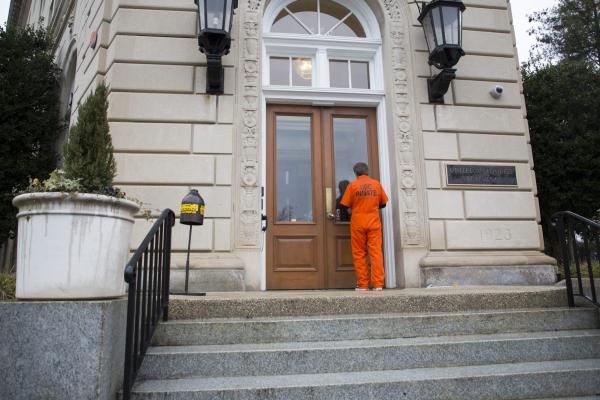Jan 26, 2017
One week ago, I emerged from 31 hours in police custody — 16 hours underground in D.C.’s central jail. It was horrific and holy ground.
I was taken underground by officers and placed in a small steel cage — literally, a cage – where roaches flowed into our walls and floor throughout the night. Curled in a fetal position, I tried to sleep on a 6’ x 2’ steel tray.
“Just one breath at a time,” I thought. “You’ll make it,” I told myself. “One breath at a time.”
Read the Full Article

Already a subscriber? Login
